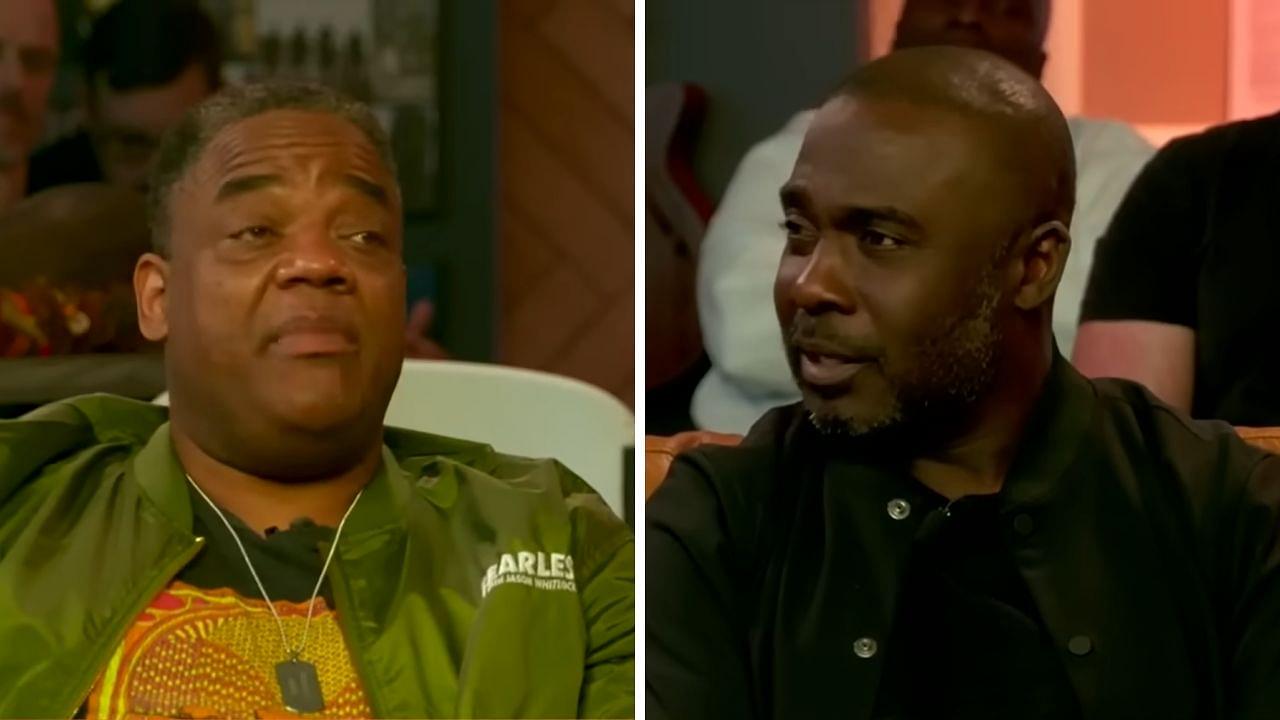Jason Whitlock has recently been in the headlines for scrutinizing Deion Sanders, his son, and college athletes who flex their money. The contentious topics included Shedeur’s mindset and instances like the display of an $80,000 Rolex watch. Whitlock delved into the impact of NIL money and its potential consequences in a recent discussion with former NFL RB Marshall Faulk. The conversation took an unexpected turn as Faulk confronted Whitlock about the way he put forth such arguments.
Advertisement
Marshall Faulk and Warren Sapp were asked whether earning significant money in college would contribute to a better NFL future. The following took place during a “FEARLESS” conversation initiated by Jason Whitlock on the potential impact of NIL deals on college football athletes. Marshall Faulk asserted that NIL money provides athletes with “leverage” that enables them to choose where they want to play.
He pointed out how this financial aspect empowers players to make decisions aligned with their preferences. If that even means avoiding teams with poor performance records in the previous season.
View this post on Instagram
“It’s leverage,” Marshall added, “We just want the playing field to be level. The teams have rights and when they draft you, they own you and your rights.”
Marshall Faulk, moreover, discussed the rights of fans to choose which team to support and which games to watch. He added that fans even wield significant influence these days, with their voices reaching every team’s front office. In the same context, Faulk wanted to drop a concern about why a college athlete who is transitioning to the NFL shouldn’t have the right to decide which organization he wishes to play for.
Jason also shared his perspective, expressing concerns about the impact of NIL money on the NFL draft system. He argued that in the old system, fans could anticipate a high draft pick and a top-rated player if a team performed poorly. It brought renewed hope. The HOF said that allowing college players to have a say in the NFL draft could give an advantage to teams with more money. Faulk added that fans have adapted to changes in the past and would likely adjust to this shift as well.
Jason Whitlock Once Shared His Views on the Influence of Money on the Sanders Family
Marshall Faulk’s argument may influence Jason Whitlock’s perspective on the relationship between NIL deals and the NFL draft. Whitlock has previously expressed concerns about the impact of money on young athletes, particularly the Sanders family. About two months ago, Whitlock criticized Deion Sanders for inviting the rap world into his sports environment, associating it with the criminal world.
He criticized Coach Prime for his approach to educating the young athletes at Colorado Buffaloes. Jason even accused them of misusing their earnings on luxuries and imitating the rap culture. He specifically targeted Deion Sanders, portraying him as lacking street sense and not adequately preparing the athletes for life after football.
Jason Whitlock then expressed uncertainty about whether Shedeur Sanders could be considered a first-round quarterback despite his potential first-round talent. Whitlock highlighted concerns about Shedeur’s personality, describing it as “undraftable” according to his insights. He criticized Shedeur’s perceived entitlement, attributing it to the influence of his father.
The discussion between Jason Whitlock and Marshall Faulk provided insights into the ongoing debate. They spoke about the influence of money on young athletes and its repercussions on professional sports, particularly through NIL deals. One one hand, Whitlock expressed concerns about the changing dynamics and their impact on team equality. While on the other, Faulk sees the positive side that young athletes gain leverage and the ability to make decisions about their future.








